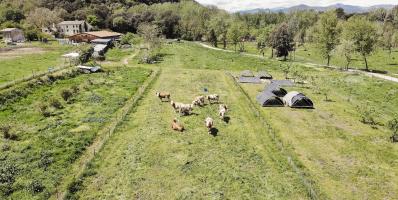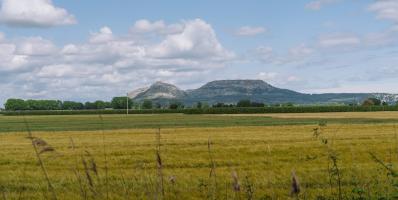Regenerative Agriculture
At CREAF, we investigate how to transform conventional agriculture into an effective regenerative model. We study the impact of regenerative practices on soil health, biodiversity and crop sustainability. We use advanced techniques to measure the benefits of this model in the fight against climate change and in improving agricultural production. Our goal is to contribute to a healthier and more sustainable agriculture that benefits both the environment and rural communities.


What is Regenerative Agriculture?
Regenerative agriculture is an innovative model aimed not only at maintaining but also improving soil health and biodiversity. Unlike conventional agriculture, which often degrades the land, this approach promotes techniques that revitalize agricultural ecosystems, such as eliminating tillage, maintaining plant cover, and integrating farming with livestock.
Transitioning from conventional to regenerative farming also involves avoiding chemical fertilizers and pesticides, and opting for natural and sustainable solutions.
Climate Benefits and Adaptation to Climate Change
Regenerative agriculture enhances soil health and offers significant climate benefits by increasing the soil’s ability to retain CO₂. Additionally, regenerative practices can make crops more resilient to extreme conditions like droughts. By increasing the organic matter content in the soil, more water is stored, reducing the impacts of flooding and erosion during heavy rains. This makes regenerative agriculture a valuable tool in the fight against climate change.





